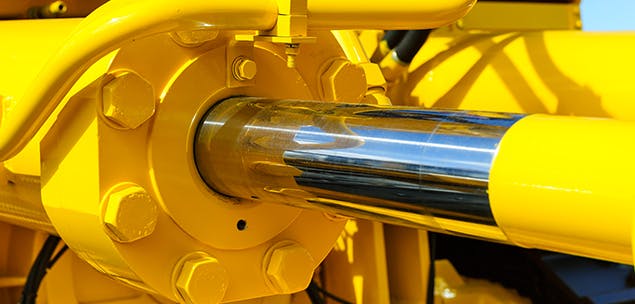If you don’t want any sort of equipment to break down and leave you high and dry at a critical moment, regular maintenance is one of the key ways to ensure everything carries on running smoothly.
As most hydraulic engineers would readily confirm, maintaining hydraulic equipment is particularly important, so here is a look at which tasks you might be able to tackle and which ones are best left to the professionals.
Keep an eye on the temperature
One of the fundamental causes of a hydraulic system failing, is when it is running too hot.
Maintaining the right temperature should always be one of your top priorities if you want to ensure that the hydraulic system keep on running, so keep a regular eye on the levels and make sure that the temperature readings fall within the recommended range.
What tends to happen when the temperature gauge breaches the suggested limits, is that you are quite likely to experience some damage to the hoses and seals. You could also quickly discover that some key components of your hydraulic system will also be subject to undue pressure and could easily end up getting compromised.
Seals and gaskets
It is worth remembering that your hydraulic system can only really be as good as the integrity of the seals and gaskets, if these fail, you can normally expect problems to ensue very quickly.
Checking for leaks is something that you can do regularly and it follows that if you are keeping an eye on the temperature gauge, you should get a reasonable early warning that your seals and gaskets could be vulnerable, as higher than advised temperatures will likely cause damage to these parts.
The result of a gasket and seal failure is probably going to be a lubrication leakage, so inspect the equipment for any signs of this happening.
Put a maintenance plan in place
Having invested in hydraulic equipment for your business, you want to get the best possible return and achieve a decent element of longevity, which you stand a good chance of doing provided you implement a maintenance plan.
The manufacturer of the hydraulic system you are using will have provided some suggested service intervals to follow, which is a good starting point and worth heeding. It is worth saying however, that these instructions don’t take account of many other variables such as what environmental conditions, climate or even operator skill levels the equipment is subjected to, all of which could mean that you definitely need to do much more than follow a standard set of maintenance guidelines.
Casting a professional eye
You can monitor the integrity of your hydraulic system yourself to a certain extent, but if you want your hydraulic system to be running at peak performance and would like to reduce the odds of a breakdown, it can often pay to call in a professional to cast their eye over your equipment.
What you can often find when you use a professional maintenance firm, is that they are trained to spot minor issues and resolve problems before they become major, and potentially expensive problems, further down the road.
It would seem a prudent bit of advice to follow these maintenance-musts, if you want to keep your hydraulic system running smoothly.
Elliot Curtis has worked as a maintenance technician for many years. Very knowledgeable in his work he writes about industry topics in order to share his knowledge worldwide – Something he things is amazing!

